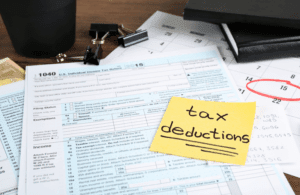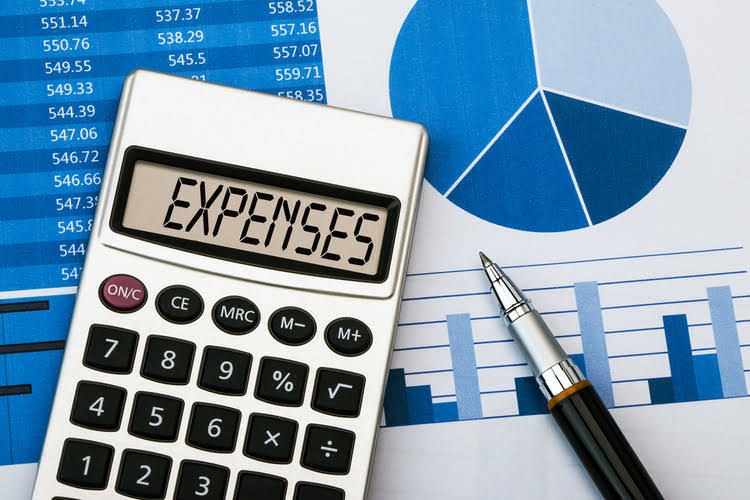
Simply claiming an expense isn’t enough; it needs to be backed by proper records. Keeping receipts, invoices, and written justifications (such as notes on business-related meals or travel) ensures that deductions are defensible in case of an audit. Small costs can add up quickly, and without regular monitoring, unnecessary spending can go unnoticed. Conducting monthly expense reviews helps identify patterns, eliminate wasteful spending, and keep financial records accurate. Platforms like doola Bookkeeping automate the process, ensuring that all expenses are recorded in real time, categorized correctly, and readily available when needed. Proper documentation of all business expenses, no matter how small, helps businesses stay compliant with tax regulations and avoid potential penalties.

GST Registration Guide for Small Businesses: Empower Your Business Growth
- Let’s see how these expenses ultimately influence key decisions that shape the future of your business.
- If your business accepts credit cards and pays processing charges, tracking these miscellaneous expenses in QuickBooks simplifies including them when filing your tax returns.
- Proper management of miscellaneous expenses helps optimize your financial strategy, maximize tax deductions, and improve overall business health.
- Keeping close tabs on miscellaneous expenses also allows businesses to understand how much money their company spends and make changes as needed to remain profitable.
- Online advertising platforms such as Google Ads and social media advertisements can reach a vast audience; however, they come at a cost that needs to be tracked.
While they may seem minor, tracking miscellaneous expenses accurately can prevent financial inconsistencies, aid in tax deductions, and streamline your records. Unlike other business costs, miscellaneous costs can’t be put into a single category. These expenses can vary greatly depending on the type of business and its operations.

Technology and Software-Related Expenses
- Besides, businesses must track miscellaneous expenses to ensure they do not lead to unexpected cash shortages.
- Staying on top of expiration dates and renewal fees ensures smooth operations and prevents unexpected disruptions.
- Amounts above and beyond $5000 will need to be amortized over 180-month period.
- Due to the COVID-19 pandemic, the guidelines for claiming home office expenses have changed in most countries as more people are now working from home.
- They are grouped in the general ledger as ‘Miscellaneous expenses’, rather than being listed individually.
In accounting, miscellaneous expenses are small transactions that usually do not fit any ledger’s specified accounts. However, businesses must keep a record and account for it in their business ledger account. In case items under miscellaneous expenses increase in usage and size, they should be given their own account.
What Are Miscellaneous Expenses?

It’s even more important when a company doesn’t have much money or resources to work with. But, depending on how they are made, they may also appear on balance sheets or cash flow statements. It ensures that all business expenses are accounted for and well-documented so that investors can balance sheet get an accurate picture of a company’s financial health. Businesses incur additional costs, known as miscellaneous expenses, that are unrelated to their primary operations. The cost of the fees they will incur could fall under the “miscellaneous expenses” account.
- However, one morning they discover a leak in the office ceiling after a heavy rainstorm, leading to unexpected repair costs.
- Typically, tools with a life span of one year or that are worth less than $200 would fall into this category.
- You may also be able to deduct the business portion of your rent or the interest paid on your home mortgage.
- Even though I budget for a certain amount of miscellaneous expenses, it seems like this amount always ends up being larger than what I was expecting it to be.
- In that case, you can claim back part of the cost of your miscellaneous business expenses on your personal income tax return.
© Accounting Professor 2023. All rights reserved
These expenses must be recorded and accounted for in your business’ general ledger. In the event the items classed as miscellaneous expenses increase in size and usage, then the miscellaneous expenses should be given its own account. Many miscellaneous expenses qualify for tax deductions, reducing taxable income and providing direct savings. However, businesses need to document these deductions accurately to claim them. Keep track of fees you pay for consultants and services from outside professionals who advise you on business matters, because those miscellaneous expenses are tax deductible. The reason that this sum is often nominal is because most tax write-offs fall within certain boundaries.
With its user-friendly interface and flexible pricing plans, doola Bookkeeping makes it easy for entrepreneurs to stay on top of their finances without getting overwhelmed. For this, you must Car Dealership Accounting have return policies in place with refund options, which essentially translate to shipping, restocking costs, or even revenue loss due to canceled orders. However, as a seller, you usually pay transaction processing fees per sale facilitated on their platform(s).

A reasonable accounting practice is to initially record these expenses in a miscellaneous expense account, and then monitor the contents of this account over time. If any items within the account increase in size, then you can create a separate account for them. Similarly, some expenses may shrink over time, in which case the accounts in which they are stored can be eliminated, and these expenses shifted into the miscellaneous expense account. For example, if a company miscellaneous expenses pays AED 50 for emergency office supplies, it would debit the miscellaneous expense account for AED 50 and credit cash or accounts payable.
QuickBooks Not Linking Bank Transactions to Expenses? Fix It Fast
This helps keep them separate from main expense categories like salaries, rent, or inventory, making it easy to track their impact without cluttering primary accounts. In the next section, we’ll explore common examples of miscellaneous expenses, giving you a practical guide for recognising these costs. By tracking and categorising miscellaneous expenses, you gain control over your finances, maximise tax benefits, and uncover cost-saving opportunities.